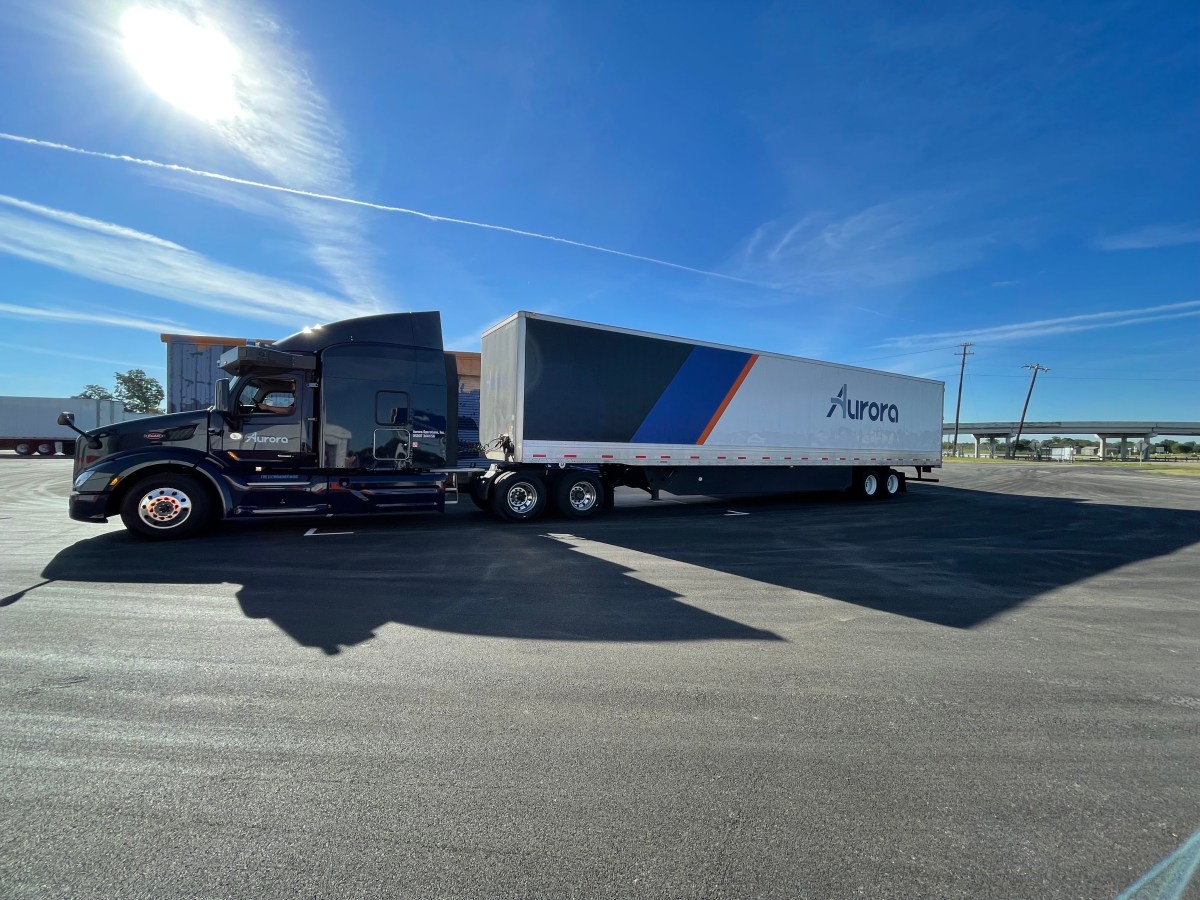Aurora Innovation, the autonomous vehicle technology company aiming to launch a “driverless” self-driving trucks business by the end of 2024, laid off dozens of workers this month, according to sources familiar with the action. The Pittsburgh-based company, which also has facilities in California, Colorado, Texas and Montana, has since confirmed that about 3% of its […]
© 2023 TechCrunch. All rights reserved. For personal use only.
Aurora Innovation, the autonomous vehicle technology company aiming to launch a “driverless” self-driving trucks business by the end of 2024, laid off dozens of workers this week, according to sources familiar with the action. The Pittsburgh-based company, which also has facilities in California, Colorado, Texas and Montana, has since confirmed that about 3% of its workforce was laid off following an organizational review.
Aurora employed about 1,800 workers as of the end of 2023, according to the company.
“As we move toward commercial launch, we recently reviewed the entire organization to ensure we are working as effectively as possible and with the velocity required to achieve our ambitious goals,” according to an emailed statement attributed to Aurora’s senior vice president of people Cristopher Barrett. “Through this process, a limited number of roles were eliminated which impacted 3 percent of our total workforce. During the recent market uncertainty, we have been incredibly thoughtful in our resourcing in order to minimize such actions. We are grateful for the contributions of these individuals and are supporting them through this transition.”
The layoffs come as Aurora presses forward with plans to deploy a fleet of self-driving trucks that can navigate U.S. highways without a human driver behind the wheel. The company has said it expects to launch up to 20 driverless Class 8 trucks by the end of 2024. Initially, these driverless trucks — meaning no human behind the wheel — will carry freight between Dallas and Houston, a route the company has been using for testing.
Aurora is also working with automotive supplier Continental on a more than $300 million project to mass produce autonomous vehicle hardware for commercial self-driving trucks. Aurora recently wrapped up the first phase of the project, which allows Continental to work on developing prototypes ahead of its plan to begin production in 2027.
Developing autonomous vehicle technology that is safe enough for public roads has proven to be an expensive endeavor that has led to numerous startups shutting down or being acquired. That wave of consolidation kicked off in 2020 and persisted, thanks to economic headwinds, well into 2023.
Aurora, which was founded in 2017 by alumni of Tesla, Uber and Waymo, took the path to public markets in a bid to raise the capital needed to commercialize the frontier tech. Aurora became a publicly traded company in 2021 after merging with a special purpose acquisition company launched by LinkedIn co-founder and investor Reid Hoffman, Zynga founder Mark Pincus and managing partner Michael Thompson.
Aurora has emerged as one of the last remaining companies focused on commercializing self-driving big rigs. Kodiak Robotics, which is privately held; Torc Robotics; and Sweden’s Einride are also working on self-driving trucks. Still, it hasn’t always been the smoothest of roads, as the high cost of employing engineers to develop the technology combined with economic headwinds has chipped away at capital.
In 2022, a leaked memo sent by Aurora CEO and co-founder Chris Urmson presented a swath of cost-cutting and cash-generating options to its board, ranging from a hiring freeze and spinning out assets to a small capital raise, going private and even selling itself to high-profile tech companies Apple and Microsoft.
The company assured investors it had enough money to get to mid-2024, and while some cost reductions were made, real relief came in July 2023 when it completed a capital raise of $820 million from a public and concurrent private offering of its stock.
The company said at the time that the stock sale would help fund it through commercial launch at the end of 2024 and “well into 2025.” Aurora reiterated its financial position in its third-quarter 2023 earnings report and said it expects its total liquidity of $1.5 billion to support its planned commercial launch and fund operations into the second half of 2025.

Leave a Reply